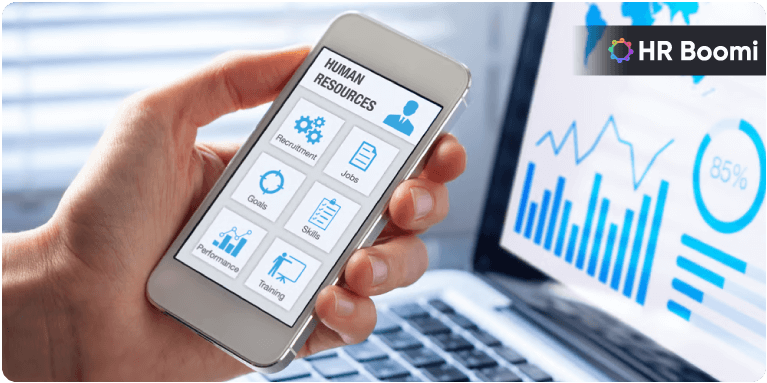
Table of Contents
Let us try and make the tedious task of figuring out the best tools suited for your recruitment needs, a lot easier. Technology has come a long way and influences every aspect of our making it easier to navigate routine tasks and automating repetitive ones. Similar advancements happened with recruitment tools too, with the advent and penetration of Artificial Intelligence (AI), many tools now come augmented with AI. With the evolving recruitment landscape, it has become essential to use the best tools that are available out there for your needs. Here is a round-up of the best recruitment tools and trends you should try out in 2023.
Recruitment Trends – 2023
1. Virtual Reality
One of the technology-driven trends is using Virtual Reality (VR) in recruitment as it becomes highly accessible and feels more real with the advancements over time. Many companies are now incorporating it into their recruitment processes to take advantage of the many benefits it offers at a low cost. Imagine conducting interviews or even networking events through a virtual platform, allowing both the company and potential hires to truly gauge if they are the right fit without being constrained by physical boundaries. VR platforms like Rumii and MeetingRoom.io are sure to emerge as major players in this space.
2. Screening Tools
Traditionally, resume screening happens by the recruiter or software where keywords indicating skills and experience from the job description are matched against the resume. More the matching keywords, it is assumed to be a better match. This method, however, does not help in understanding a candidate’s soft skills or cultural fit with the organization. AI-based tools can now assess those aspects of a candidate by providing various puzzles to solve or games to play.
3. Less is More: Minimalistic Job Postings
Gone are the days of lengthy job postings with dizzying lists of qualifications and requirements. Candidates in today’s market crave concise, easily digestible information. To adapt to the times, companies are turning to minimalist job postings that clearly communicate the most essential information. Platforms like Joblint are gaining significance as they help optimize job descriptions, ensuring you’re attracting the right talents with these laser-focused postings.
4. Leveraging AI for Candidate Engagement
Incorporating artificial intelligence (AI) and chatbot technology in the recruitment process can significantly improve candidate engagement. Many platforms provide organizations with AI-driven chatbots that assist applicants in real-time, from providing information about job openings to answering candidates’ questions.
Here are some trends in recruitment tools leveraging AI:
- Candidate Sourcing: Recruiters benefit from AI-enabled sourcing tools which find candidates by searching through social media, job boards, and other online platforms by using algorithms that identify and match job descriptions to candidate profiles.
- Resume Screening: AI is also being used to screen resumes and applications. AI-enabled systems can quickly scan and identify relevant qualifications, skills, and experiences, filtering out irrelevant resumes and saving many recruiters’ time.
- Interviewing: These can conduct virtual interviews and analyze candidate responses to questions, assessing factors such as tone of voice, facial expressions, and speech patterns to determine whether the candidate is a good fit for the role.
- Chatbots: Chatbots are becoming increasingly popular in recruitment. They can be used to answer frequently asked questions from candidates, collect information, and schedule interviews. It saves the hassle of calling or emailing HR professionals and waiting for their responses. It is convenient and saves time for the candidates and recruiters.
- Data Analysis: AI makes it a breeze to automatically analyze data on recruitment trends and patterns, identifying areas where recruiters can improve their processes and making predictions about future hiring needs.
AI makes the recruitment process efficient and helps in making many decisions faster. AI-based tools when used to augment human decision making will give better results for now. They are not yet ready to replace human decision-making completely. However, with the current pace of technological advancement, it may be possible to depend on the tools in future fully.
Best Recruitment Tools In 2023
Here are some of the best tools available for you to choose from:
1. factoHR
The full suite of tools to manage the end-to-end recruitment process is available in one software package. The factoHR recruitment software includes applicant tracking systems (ATS) to manage resumes and applications, as well as video interviews and other virtual tools to connect with candidates.
Pros
factoHR is modular yet an integrated set of seamless recruitment tools. It provides bulk resume upload, automatic resume parsing, de-duplication of resumes, publishing vacancies on internal job boards, tracking applications, and many other features, including integration with social media to publish vacancies and access candidate resumes.
2. LinkedIn Talent Solutions
LinkedIn is one of the most popular social media platforms for networking and job search by professionals. With a range of tools to find and attract top talent, LinkedIn Talent Solutions provides additional features like employer branding and job postings. LinkedIn has more than 72 million members from India and thus becomes a great place for recruiters to search for their ideal candidates.
Pros
Since LinkedIn Talent Solutions has a social media network as its backbone, it automatically facilitates relationship-building with potential candidates ensuring a greater level of engagement. The solution itself provides a user-friendly interface that enables easy search. It also enables data-driven decisions by providing various reports and analytics.
3. iCIMS
This is an end-to-end recruitment solution that is hosted on the cloud. iCIMS has a suite of tools covering recruitment, onboarding and workforce management. Its interface is intuitive and users have the facility to customize workflows to suit their requirements.
Pros
Having a full suite of tools for end-to-end recruitment makes it easy for recruiters to manage their complete recruitment process in one place. The platform also offers analytics and reporting which are useful for recruiters to gauge the process performance and make improvements as necessary.
4. Jobvite
This recruitment software provides a comprehensive set of tools for sourcing candidates, tracking applications and recruitment marketing. Jobvite has a range of features that facilitate the distribution of job postings, recruitment using social media and manage employee referrals.
Pros
The stand-out features of Jobvite are ease of use and customisation options. It can also integrate with other recruitment tools and job portals like LinkedIn and Glassdoor providing recruiters with many sources for finding the right candidate.
5. SmartRecruiters
This tool is a modern platform for end-to-end recruitment with customisable workflows and an intuitive interface. It has modules for marketing, sourcing and application tracking.
Pros
Like many good recruitment software tools, SmartRecruiter provides a comprehensive suite of tools covering the entire recruitment process. It also facilitates reporting and analytics of recruitment data.
6. Talview
Talview is an AI-enabled recruitment platform that provides tools for video interviewing, proctoring, and candidate assessments. It uses AI and machine learning algorithms to analyse candidate responses and provide insights on candidate fit.
Pros
Talview offers a range of innovative features, such as AI-enabled assessments and proctoring, that help streamline the recruitment process and improve candidate quality. This tool also offers customisations and integrations for easy use.
7. BambooHR
This is an HR management software with integrated modules for recruitment, onboarding, tracking time and performance management. BambooHR provides various tools to help integrate new hires into the organization.
Pros
Its application tracking system (ATS) allows recruiters to manage candidates through each stage of the recruitment and onboarding process. It facilitates the creation of customized job postings prompting for all relevant details. Communication with candidates throughout the hiring process can be automated, starting from sending interview invitations and sending updates at every stage of the process.
Every platform has unique features and advantages. Based on the above list, needs and available budget, recruiters can choose the tools that serve their needs. While you could use different tools for different phases of recruitment, it makes it easy to have them all in one place with an integrated solution like the one factoHR recruitment software provides.
Conclusion
The best recruitment tools in 2023 for each phase of the recruitment process would depend on the company’s recruitment needs, budget, and the specific features and functionalities required. However, the above tools have proven effective, making them worth considering when building your recruitment strategy. As we continue sailing through 2023, adapting and evolving our recruitment strategy will surely result in a competitive edge. So go ahead, give these tools a try – and I’d love to hear about your experiences in the comments below! Happy recruiting!
Recent Posts
-

In-house vs. Outsourced Payroll: Pros and Cons
-

Mastering Talent Retention: A Corporate Challenge
-

What is employer branding and how to apply it in your company?
-

The Significance of Employee Communication Within
-

What is time management and why is it important?
-

Net salary: what is it and how is it calculated?
-

Enhancing Employee Experience: Strategies for Excellence
-

10 Best Gifts to Boost Sales Channels
